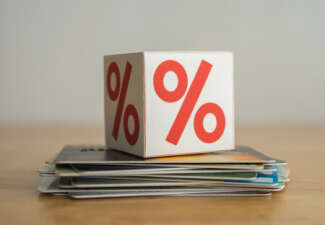The content on this page is accurate as of the posting date; however, some of the offers mentioned may have expired.

The Federal Reserve raised interest rates by 0.25 percentage point - the 10th consecutive interest rate increase since March 2022. As a result, the federal funds rate went up to a target range of 5%-5.25%, which is the highest since August 2008.
The benchmark borrowing rate affects many consumer credit products such as mortgages, auto loans, and credit cards. And while there was no decision made to pause further rate hikes, there were some hints in the official statement.
Still, as the Fed continues to raise rates, you may want to understand how it can affect you. Here is where you can win or lose from rate hikes:
- Savings accounts: Rising interest rates mean you may see banks offering higher returns on their savings accounts. However, banks tend not to respond fast and rise their APYs (annual percentage yield) long after rate hikes.
- Certificate of deposits (CDs): Those who've recently locked in rates, you will retain those yields for the term of the CD. And if May's hike is indeed the last one, now is the time to be locking CDs.
- Mortgages: The federal funds rate doesn't really impact mortgage rates. They usually depend on the 10-year Treasury yield.
- Stock and bond investing: Low rates are beneficial for stocks, which you could see when the Fed kept rates at near-zero. Higher rates can slow growth and earnings. Bonds are also hit hardly by higher rates.
- Credit cards: Credit cards usually come with variable rates, meaning the rates will change along with the federal funds rate. And unlike with savings accounts, credit card companies tend to respond fast to any rate hikes. However, if you have a habit of paying off the card balance in full each month, interest rates shouldn't be an issue for you.






